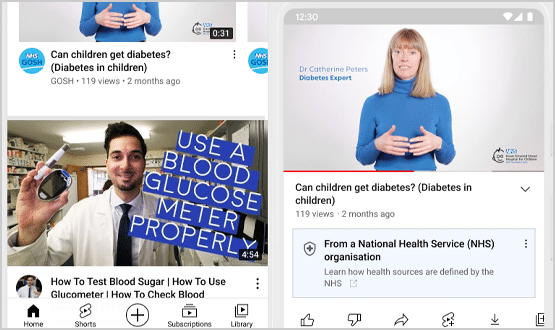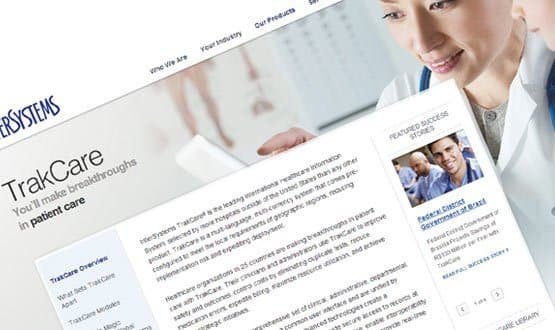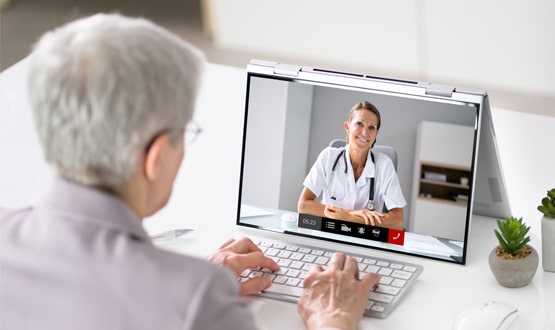YouTube feature to help users find credible health information online
- 15 June 2022

YouTube has launched a new feature which will help people in the UK find credible health information online.
Health source information panels will be displayed on videos which have been certified as coming from an authoritative source.
Speaking at a briefing, Garth Graham, who is head of YouTube Health, confirmed that currently “only health organisations with government accountability could potentially be eligible” to have their videos verified. He added that these organisations will have to “self-certify against NHS standards for creating health content” in order to have a health information panel displayed on the content.
Graham said that the launch of the panels reflects a shift in the way people want to access health information.
“Gone are the days that people are just looking to get their information from a flyer or a billboard, people are getting information in a lot of unique ways, including from platforms like YouTube and others,” he said.
“So, we need to think about the quality of the health information, how easy it is to understand and how engaging that information is overall.”
More impactful methods
This opinion was echoed by Dr Tim Ferris, director of transformation at NHS England and Improvement, who said that video can be “much more impactful”.
“There is something really special and different about the transmission of health information via video than the classic being handed a piece of paper as a patient as you walk out with factual information, often written in a way that is not as accessible,” he added.
Dr Ferris also said the NHS “wants to ensure that patients can access trusted content whenever and wherever they are looking online” – adding that the intention is to “expand the options and sources going forward”.
Great Ormond Street Hospital for Children NHS Foundation Trust (GOSH) has been one NHS organisation which has been trialling the use of videos as a way of conveying health information.
“The world has changed quickly, there is so much information and with information there is also opinion and what we really want to do is point people to trusted and authoritative information,” said its CCIO and a consultant fetal and paediatric cardiologist, Dr Shankar Sridharan.
He added: “Medical leaflets are stuck in 1970 – how the world consumes media is different so we wanted to create trusted and relevant content.”
Dr Sridharan also said that when people see the NHS badge, they know it is “a trusted site” which “gives a feeling of reassurance”.




